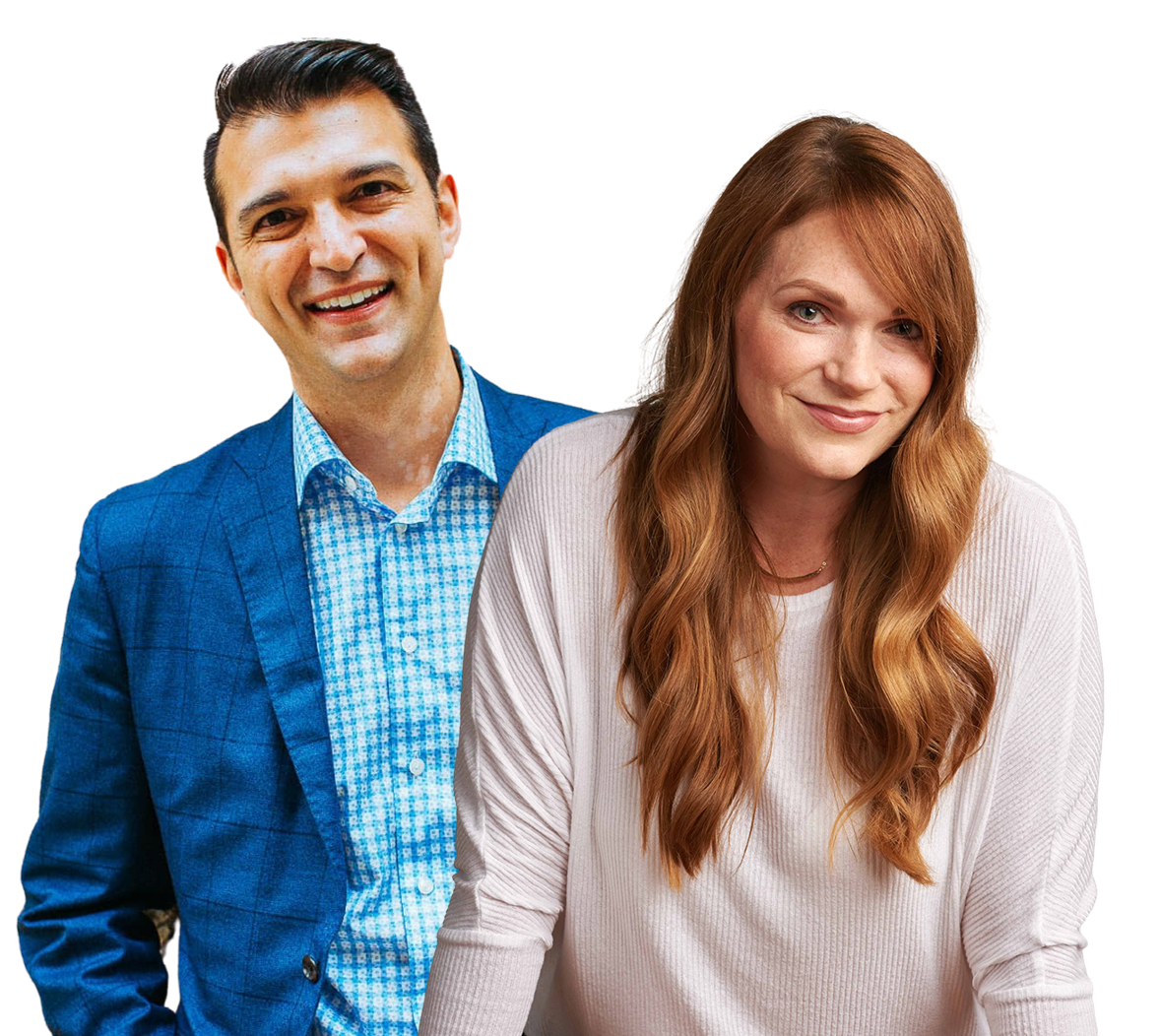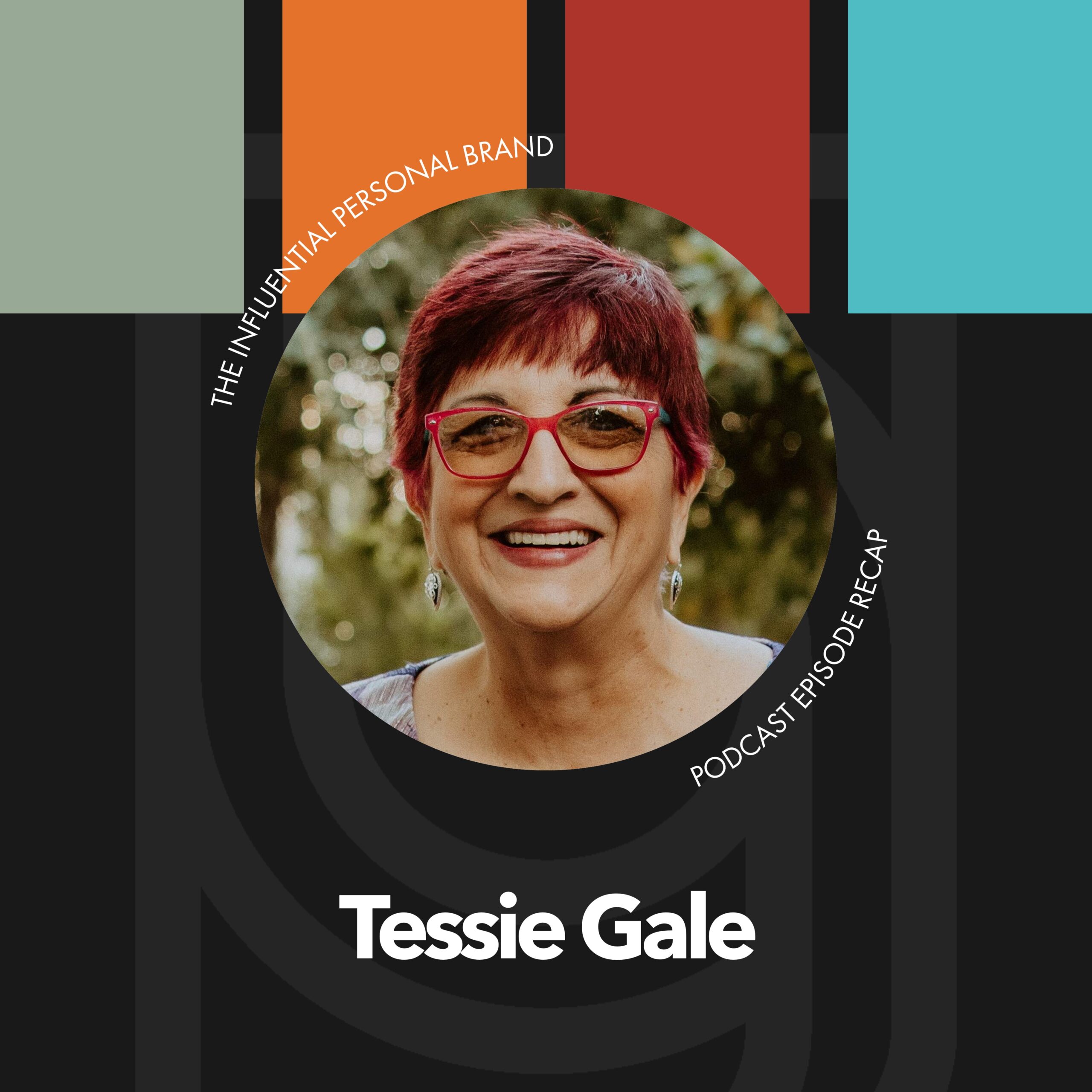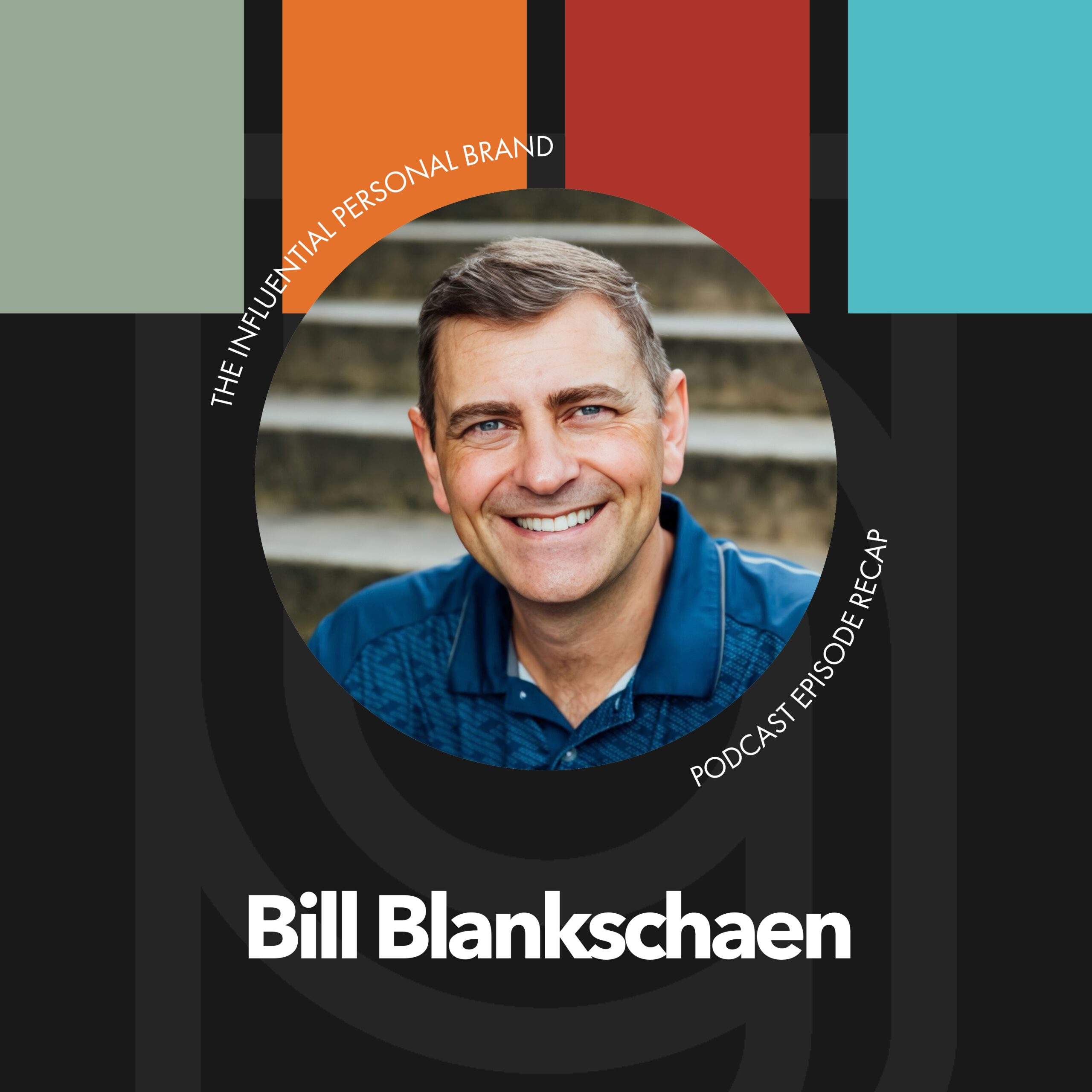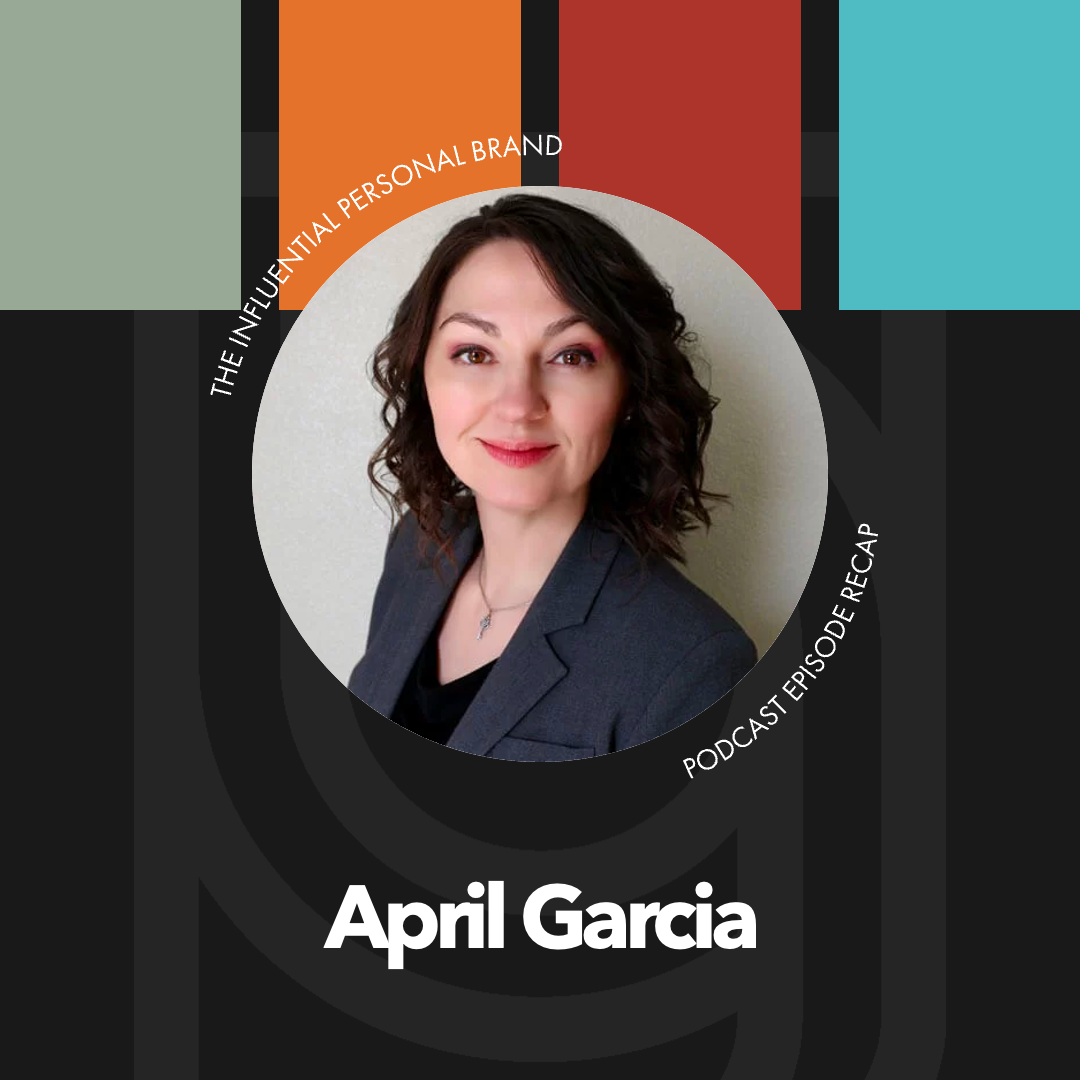Getting out of your own way and learning to believe in yourself, what a great chat with my friend long-time friend, John Acuff welcome to this special recap edition of the influential personal brand podcast. Rolling solo here today. No AJ, but I’m dissecting and debriefing this, this discussion that I had with John and I, I love John because, you know, when I watch him as a speaker, I just think he’s hilarious. And, and insightful. But every time I spend time with him, one-on-one he always phrases things in a way that I can like grab hold of them. And
This conversation was no different and this is kind of a newer, a different space for him than I, I think, you know, a lot of his early work was really rounded, like really, to, I guess, more of like your career and, and, and how do you, you know, kind of keep track of your career and then he’s moved more and more into like the inspiration, motivation, and goal setting space. And so anyways, this is just a fun conversation, fun to see the evolution of his career and all the different ways, all the different ways that he uses his, the various assets and skillsets that he has. And so I want to give you my top three takeaways from the conversation like we do on every, every episode in terms of what stuck out to me. And the first thing was, you know, of course this was a, this was basically a conversation about successful self-talk for personal brands.
And the difference between overthinking and preparation was a huge distinction for me, where he basically said preparation leads to action. So preparation ultimately is pointing you towards action. You’re getting closer and closer to action. Whereas overthinking just leads to more thinking. And I think that’s really good, right. Is to go because there’s value in being prepared. There’s value in thinking through things. There’s, there’s a lot of value to go and let’s make sure we do things right and not just do them fast. And so, you know, that’s always something that I’ve wrestled with. I think a lot of, a lot of you wrestle with that is going okay, you know, how much is the right amount to widdle on my website before it goes live? How much is it right to like edit on my manuscript before I just send it in? You know, how many times do I need to edit my video before I just post it?
And, you know, so I think there’s this, this, this balance of like working in it and refining it and preparing for it. But also not with procrastinating and overthinking. And so that was a huge distinction to me of going, okay, you know, you’re doing the right, like, you know, it’s a healthy use of your time. If it’s like moving you closer to action and to better action and to more effective action, then I feel like that’s the, that’s the healthy indicator. But if you’re just thinking, and then it’s causing you to think more and think more and think more, and you’re not actually stepping closer to hitting publish or to going live or to launching or to action, then it’s really just creative avoidance to borrow a term from my take the stairs book. Right. That that’s really all it is. And I thought what John said was super powerful when he said over thinking is anything that anything that you think that gets in the way of what you want overthinking is anything that you think that gets in the way of what you want.
That’s super powerful, right? It’s just, just going, okay. You know, overthinking could be negative thinking. It could be procrastination, it could be distraction. It’s just any type of thinking that gets in the way of what you want. And this is so critical to me because I think becoming a, whatever, a best-selling author, a successful speaker, building a successful personal brand, being a successful entrepreneur, what people don’t realize is we think that the battle is out in the tactical of like, how do I do this? And what technology do I use? And who’s the right vendor and how do I structure? And, you know, there’s like a lot of the details and, and, and, and those things are important, right? I mean, a lot of what we teach at brand builders group is related to those, those tactical things. But you, you can’t win that battle until you first win the battle in your mind that you, you deserve this and that you need to take action.
And so that’s why I loved this episode was because, you know, you have John and I both kind of going back and forth sharing various insecurities that we’ve had to overcome and that we still have to overcome, and that we wrestle with to kind of get to where we are and, and, you know, to, to where we’re wanting to go. And I think, you know, that’s just really big, it’s understanding that distinction of what is healthy thinking in terms of preparation and Polish and, and editing and, and making things better versus unhealthy thinking, which is ultimately just an excuse to not have to take action. So I really enjoyed that. The second thing is less about something that John said specifically and more just about this topic in general. I think the idea of positive self-talk or affirmations, you know, this mental programming, these are, these are things that I’ve cared a lot about.
I’ve practiced a lot. I’ve read a lot about research, a lot about and written about, I mean, and, and take the stairs. So in my first book, take the stairs. There’s a whole section called the creation principle of integrity which talks about this very deliberate connected pattern between the, the things you say to yourself in your head, which John calls, soundtracks, which I think is kind of a cool, a cool metaphor illustration of, of it, and how that ends up manifesting the results that you experienced in your life. And it becomes a huge part of the mechanism. And, and I think, you know, so there’s just a, this is a moment to recap some of those, but the biggest thing is just for you to know that the way that your brain works is that you don’t believe what is true. I don’t believe
Leave what is true. We don’t believe what is true. We believe
Ever. We hear most often, like our brain is neutral in its ability to determine truth. What, what we associate as truth is just whatever we’ve heard with the most frequency and we’ve decided and convinced ourselves or allowed ourselves to believe that that is his truth. Rarely do we take everything that we believe to be true and run it through, you know, like data analysis, or do we test it against historical accuracy or, or scientific corroboration? Most of the things that we believe is kind of like, you know, it’s because we heard them. And so the good news about that is that you can rewrite your programming. I mean, your brain is like an operating system. I, when, when people talk about belief, you know, I think the mind often kind of wonders, at least mine, mind thinks of that as kind of almost like touchy, feely or esoteric or abstract.
It’s kind of like out there in the world of, of go. And the, I don’t really know how do I believe in myself that is you know, it’s, it feels somehow impractical, but when you think, okay, my brain is an operating system, it’s like a computer and it runs on a program and the program is whatever. I tell it to run, whatever, I’ve what I, whatever I have been telling it most often, that is belief. And, you know, John calls those soundtracks, which I think is a great as an easy parallel for people to understand. But whatever you’re struggling with is, is not the truth. Like whatever, your, whatever you’re telling yourself about why you can’t succeed or whatever question you have about like, am I good enough or smart enough or experienced enough? It’s not based in truth. It’s based in unfamiliar unfamiliarity.
That’s a hard one to say unfamiliarity, because as you tell yourself over and over again, this a new, you, you restate something it’s, it literally is a new neural pathway that’s formed in your brain. And the more times you have that thought, the easier it is to, for those synapses to fire. And that becomes accepted as truth as a way of thinking, it’s, it’s, it’s written into your programming. So you have to architect your own operating system. You’ve got to program yourself. And if that feels weird to you, like, Oh, I have to program myself. The only thing that’s weirder than that is going, if you don’t do it, you’re allowing other people to do it. So this is happening, whether you want it to happen or not. Most of our programming comes from our parents and our friends and our TV, you know, like the media and our church, or like whatever we’ve been told.
So either you’re doing it intentionally, or it’s just happening to you accidentally. And that’s a real dilemma. And I’ve been shocked over time because I, I grabbed hold of this concept early in my life. I’ve had pretty healthy self-talk for most of my life. But as time has gone on, I’m realizing how many people have never been exposed to this or got exposed to it late in life. And they have all of this negative conditioning. And what, what scares me is that most of us would never let someone talk about their family member, the way we allow ourselves to talk about ourselves. That’s scary to me. You would never let someone talk about your mom or your spouse, or your brother, your sister, or your kids. Like you would never let some stranger say the kind of things about them that you allow yourself to say about yourself all day, every day.
And that is scary and heartbreaking because it’s not true. The only thing that is making it true is that your telling yourself that over and over again, and it is just as easy for you to say the complete opposite of that and say it again and again. And that is what becomes truth is you might say, well, it’s a lie. It’s not that it’s a lie. It’s that it’s new. And so it’s unfamiliar. It’s kind of like walking. I use this illustration a lot is like, it’s why you go hiking in the, in the woods or something. There is a path it’s easiest to stay on the path. That path has been paved, right? Like the path has been made. If I want to go off that path and go a different route, there’s no path there’s literally brush and trees that I have to peel back and knock down and pull apart.
And you might have to dig or lay rocks across the stream or build a bridge, right? It’s, it’s, it’s much harder the first time to form that new path. But then every subsequent time you go down that path over and over and over, even the second or third time, it’s exponentially easier than it was the first time. And by the 50th time or the hundredth time, that path is just as clear as the one you used to take. And so it becomes just as easy. And that’s how truth works. Well, that’s not how truth works. That’s how your brain works right. There, there are things that are true. I’m not saying that there isn’t truth. I’m saying what our brains perceive and receive and accept this truth are what we hear most often. And that is something you have a lot more control over than you realize.
There are certain things that are true. They can be proven true. They’re scientifically true, but that’s not, most of what’s in our head. Most of what is in our head, we’ve never even bothered to ask to say, who said that? Who told me that? Is that even right? Like, you know, is that even accurate to Thomas Edison really invent the light bulb? I don’t know, like I wasn’t there, but, but, but a lot of people go, well, of course he did. Well. Why? Well, because my history teacher told me and I read it in a book. But in fact, the more you dig into that, the more you’ll find there’s quite a lot of discrepancy about whether or not Thomas Edison invented the light bulb. Right now. I’m not here to challenge Thomas Edison. I’m here to say that there are things like that, that you accept as certainty that are not certain, they’re just familiar.
They’re just repeated with regularity and our brain interprets that as truth. And so belief doesn’t have to be this hooey phooey kind of gushy abstract thing. It is a concrete matter of programming your own brain, the way you would program a computer. And you’re either doing it deliberately to yourself or you’re allowing it to happen accidentally through other means. And which I think is kind of the essence of what John’s whole book and the conversation was all about. So that was really good. And then the third takeaway for me, which I loved, and this was, this was inspired by something John said, but I don’t think he said it exactly like this. But as I went back and I was listening to the interview and I was replaying it in my head and I was reviewing my notes, what really hit me. And perhaps this was the most salient learning moment of the conversation for me personally, is that your clients can’t hire you at a level that is higher than what you believe in yourself to be right.
Like, I can’t hire you at a level that is higher than you believe yourself to be. And there are certain clients who would pay more, who look, they look at you and they see you in a way that’s even higher than you see yourself, which is kind of wild, right? It’s like they don’t even know half of what you’ve been through. They don’t even know half of what you’ve learned. They haven’t seen half of the strife and trouble and problems and challenges and experiences in education. You know, that, that you know about yourself. And yet they see you in a more elevated light than you see yourself. That shouldn’t be right. That’s not fair. That doesn’t make any sense. Why is it that way? It, it, it’s just because some of us, a lot of us are harder on ourselves and more demanding on ourselves even than the people around us.
And that is something that is holding you back. Like you might think, Oh, this is just like a, you know, a good idea that I should believe in myself, but this is literally a dollars and cents thing. Like they can’t hire you. They can’t pay you for more than you think you’re worth. Like you’ll, you’ll sabotage it. It won’t work. There’ll be this disconnect and, and many cases, they probably see you even better and more credible and more qualified than you see yourself. So you have to proactively intentionally deliberately develop your, your own. Self-Confidence in a way of how you speak about yourself, what you tell yourself, your worth based on what you’ve done, because clients, aren’t going to be able to hire you at a level that is beyond what that is for you. And so that raised starts in your mind, you know, that level of credibility, that level of cachet, that level of respect starts in your mind.
And, you know, you throw out whoever the names are in your industry or your space and, and, you know, in your mind you kind of go that, that person’s the leader or that that person is the number one, you know, and, you know, in your mind, you kind of like rank, where do you compare with that person? And you’ve got to proactively, like, if, if you don’t really believe you’re at the top of your game, and I’m not saying that you have to think you’re the best. You may, you may not be the best, but, but where are you at really? And that’s based on how much value can you provide to your clients? How much experience do you really have? How much education do you really have and, and going okay, if I’m struggling with self doubt, I either need to do some things proactively.
I need to increase my education. You know, I need to increase my education. My experience, I need to increase my network. I need to grow my platform. My following, like there’s certain things that I need to do that would help me do that. And, and some of them are tactical and practical, and some of them are just the mental conditioning of your own mind, the way that you would strengthen a physical muscle, you have to do the same thing, which you know, very directly and repeatedly in this conversation is self-talk. And what you tell yourself about yourself. So, you know, the way that John said it, which I really loved, I thought this was, was clever retire, replace, and repeat, retire,
Replace and repeat. Because you probably wouldn’t let other people say some of the things about your family that are things that you say about yourself. You’ve got to develop your own. Self-Confidence your own conviction, your own level of certainty that you’re speaking from your uniqueness. You’re speaking from a place of experience. You’re speaking, not just from a matter of what you’ve done, but because you’re living a calling of who the world needs you to be, and that you’re fulfilling a purpose that was set out for your life and out of that should come a great conviction, that it is worth something very, very honorable. That’s all we got for this week’s influential, personal brand podcast recap. Keep coming back, my friends and stay tuned. We’re so grateful for you. Bye-Bye














